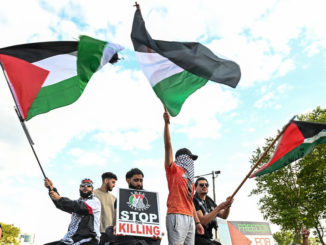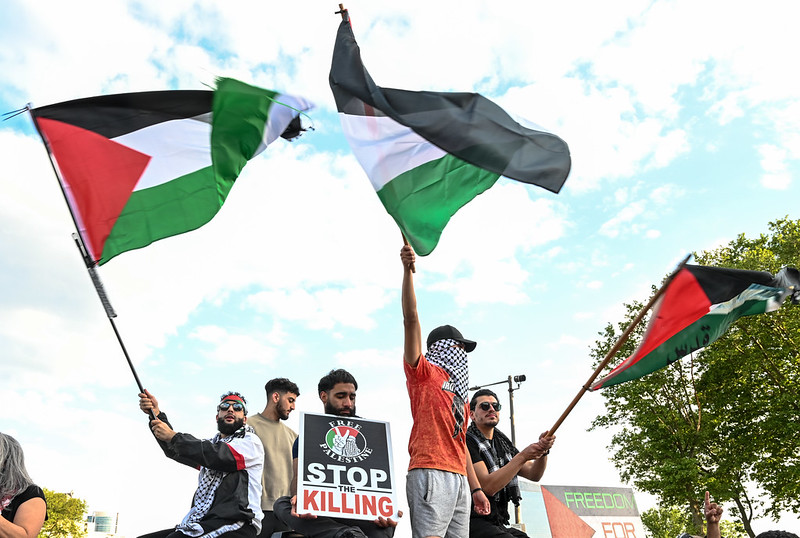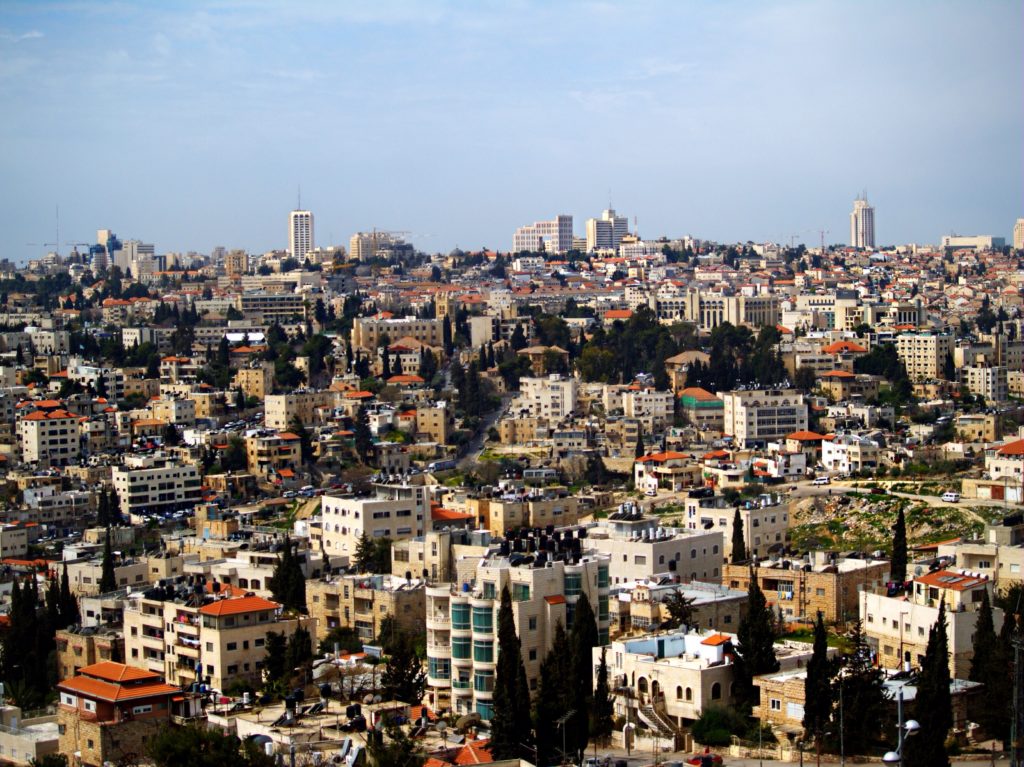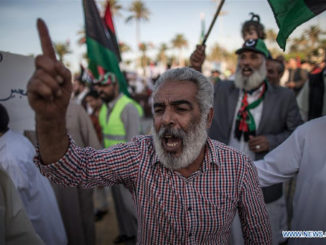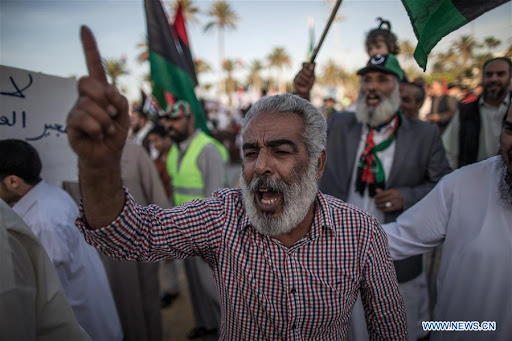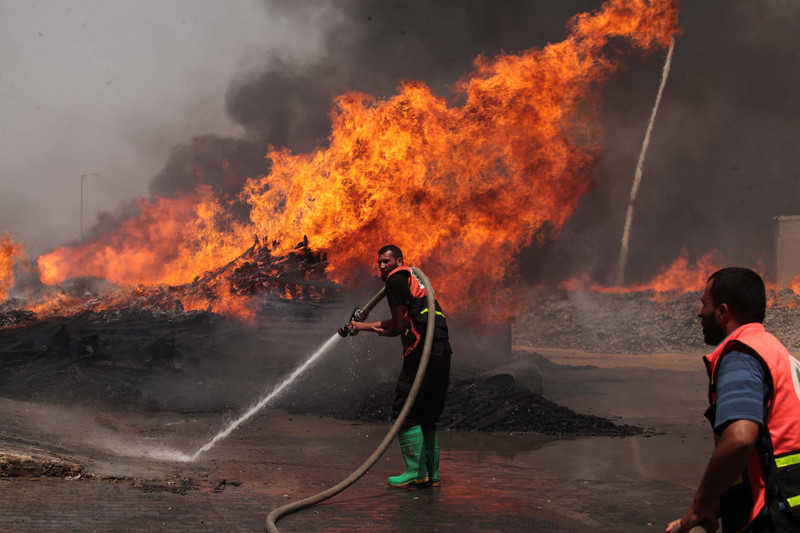
Editor’s Note: This article originally appeared in Electronic Intifada.
Kamel Arafa’s family is in constant fear that something bad could happen to him. Relatives of the firefighter from the Jabaliya refugee camp in Gaza City have therefore decided to try to stay in constant touch with him during emergencies.
It doesn’t quite suit Arafa, 38, even if he appreciates the concern.
“It is better not to call. I’ve asked my family to calm down. They just can’t. They are right as well. What we go through is brutal.”
The father of four has been an emergency responder for 15 years. He joined rescue crews during all recent major Israeli aggressions against Gaza, starting in 2008.
“Every time I hear my phone ringing during escalations, I instantly understand it is work with a new emergency and probably more casualties,” he told The Electronic Intifada.
He answers such calls with mixed feelings.
“We throw ourselves into dangerous situations to rescue people from death but we know we might be dead ourselves at any moment.”
During Israeli offensives, Arafa works from early morning until late night to rescue people and their belongings, especially those buried under rubble. He sometimes does not return to his house for five or more consecutive nights.
“Once we get a chance to rest before heading to a new task, we nap anywhere. Anywhere. On any piece of cloth, on the sidewalk, in the car.”
Despite all the challenges, he said, they will continue to work. No matter the danger, every first responder will only work harder when they hear people crying for help from under rubble, he said.
2014 Trauma
During challenging times, Arafa wants to be next to his children, aged between 6 and 12, and wife to reassure them. “I sometimes hug them so hard before leaving home, a goodbye hug as if I might not return.”
First responders usually carry traumatic memories around with them. Arafa has his share.
The 2014 massacre which Israel carried out in the Shujaiya neighborhood of Gaza City proved particularly harrowing.
“In 2014, we were able to enter Shujaiya after Israel declared a humanitarian truce. The truce was violated immediately by the Israeli forces. The whole scene was awful. Many bodies were strewn on the ground. Some were fully burnt. There were also the bodies of animals.”
During the same assault, he still vividly remembers the aftermath of the Wahdan family massacre in the northern Gaza town Beit Hanoun. Israeli soldiers had kept the family inside and used their home as a military base.
Twelve people died there, and Arafa vividly remembers specifically how the women’s bodies were burnt.
“I cannot forget at all. It was horrifying,” he told The Electronic Intifada.
“We saw women besides their children, all dead under the rubble. I sometimes think of their last moments, what they were thinking of, and how they felt. It is a bad ending.”
Like Arafa, Mohammad Abu Shaqfa worked throughout all Israel’s wars on the Gaza Strip. He remembers them all simply as bloody conflicts filled with people in need of his help, except for 2014, when it got more personal, and he lost two of his closest colleagues in front of his eyes.
Abu Shaqfa, 34, and five of his colleagues had been called to the Shujaiya neighborhood, and thought at first that the shelling had stopped.
“All of a sudden, a series of heavy explosive tank shells were fired directly at us. Our colleagues Rami Thaher and Ahed Dahduh were killed in front of my eyes,” said Abu Shaqfa.
He took a small pause to collect himself before he continued.
“It was a shock. I was in disbelief,” Abu Shaqfa told The Electronic Intifada. “It was a huge loss for me.”
No Protection
For Abu Shaqfa, the job is just that, a job.
“I have no difficulty rescuing people I don’t know.”
But it was different with his colleagues. “It was much harder,” he said. “We were six on that mission. Only four came back.”
He had done his best to deal with the situation and continue working. But he concedes that “I did not give myself enough time” to process what he had just seen.
There were other people to rescue, he said. “Under pressure, I returned to reality and started to work again.”
With limited staff and equipment, Gaza’s civil defence sometimes calls on volunteers to assist in a rescue operation, like in the Wihda Street massacre in Gaza City last year, where residential buildings belonging to the Abu al-Ouf and al-Qawlaq families were bombed at nearly the same time.
“Calling more people to join us was important as the destruction was massive, and we needed to avoid a high rate of civilian casualties,” Abu Shaqfa said.
It is the ever-present danger of Israeli aggression, and the high price such aggression exacts, that makes the work of first responders in Gaza so demanding and dangerous. Add to this, an Israeli-imposed siege on Gaza prevents necessary equipment from helping the civil defense forces modernize.
Thus, Gaza’s firefighters are unable to secure vital items like fire hoses, firefighter lights or spears under Israel’s so-called dual-use lists of banned products.
The poor resources available to Gaza’s firefighters were briefly noted by Western media last month.
The New York Times reported, for example, that the first two fire trucks which reached the scene of a major fire in Jabaliya refugee camp did not even have a ladder between them. That was despite how the building where the fire occurred had a number of floors.
A total of 21 people were killed in the Jabaliya fire.
Better equipment could allow first responders in Gaza to “save thousands of lives,” Samir al-Khatib, deputy director of Gaza’s civil defense, said.
“We have not been able to keep pace with developments abroad. “
In all, according to al-Khatib, Gaza has between 450 and 500 emergency responders, including firefighters.
First responders are supposed to be protected under the Geneva Conventions. However, according to al-Khatib, 34 have been killed during Israel’s aggressions against Gaza since 2008.
“We have been targeted multiple times even though we always wear our uniforms. Our cars are known to the Israeli side,” said al-Khatib. But, “we cannot trust the Israeli soldiers. We fear the treachery of the occupation forces.”
Ghada Al-Haddad is a journalist based in Gaza.



